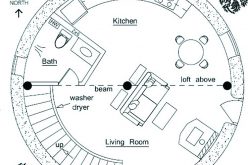Simple methods evict pests from your kitchen
AMANDA BANCROFT
Making Ripples
As the No. 1 house pest, ants aren’t just in our pants. A trail of tiny ants is as common on a countertop as a sponge is on a sink. Ants feast in our kitchens until they seem like a staple food that never runs out. (If we must run out of bread, why can’t we run out of ants?) They colonize the yard, enjoying garden parties. A car is just a mobile ant apartment to them. Pharaoh ants can invade office buildings and nest between two pieces of paper! Fire ants think a utility box was built just to shelter them during heavy rains.
Ants are quite admirable creatures, as you already know if you’ve read past Making Ripples columns. But how do we get rid of them without hurting the environment? There are interesting methods out there. Some authorities are even using a form of “birth control” that fire ant workers take to queen ants to prevent them from reproducing, reports the Australian Broadcasting Corporation. Most folks are probably short on ant birth control but are sure to have some of the following products in stock at home: cinnamon, vinegar, peppermint, lavender, black or cayenne pepper, cloves, chalk, or citrus like orange, lemon and lime.
Ants get around using chemical trails. By disrupting these pathways, ants can’t follow the pheromone “scent” into your home. All of the aforementioned home remedies do just that. They repel ants with their strong scent or texture. Try them out on your ants to see which ones are most effective. Draw a protective chalk circle around whatever they’re getting into (sounds hokey, but it does slow them down). Sprinkle cinnamon or pepper across their trail, or wipe it away with vinegar, peppermint or lavender essential oil, or a slice of citrus. Watching confused ants refuse to cross a line makes for amusing entertainment. Mix vinegar with citrus for a repellent spray.
If possible, remove whatever is attracting the ants. Even killing one nest won’t guarantee another colony won’t find you. Eliminate colonized indoor house plants, don’t leave out pet food (or move it to a different spot), seal cracks in exterior walls, leave no trace of opened food in the kitchen, wipe countertops regularly, and so on. It may help to reduce an object’s contact with the ground if ants are crawling up it, and Vaseline or petroleum jelly can halt the flood. It’s interesting to note that some ants are more attracted to protein, while others prefer sugar — if you can figure out which species you have, it will be easier to determine what’s attracting them.
Decide if you’re comfortable killing ants or not, and use the appropriate natural remedies depending on your choice. If you combine borax with powdered sugar, some ants will carry the borax-laced sugar back to their colony, where it kills them all. Note: Some people claim borax is natural and safe, others think it’s a poison, so you’ll have to research it for yourself. Borax is not the same as boric acid, and it’s also not diatomaceous earth, which are two things people confuse with borax.
Ants are tenacious, but we have an arsenal of options when it comes to environmentally friendly ways to repel them.
Amanda Bancroft is a writer, artist, and naturalist living in an off-grid tiny house on Kessler Mountain. She and her husband Ryan blog about their adventures and offer tips to those wanting to make a difference at www.RipplesBlog.org.










